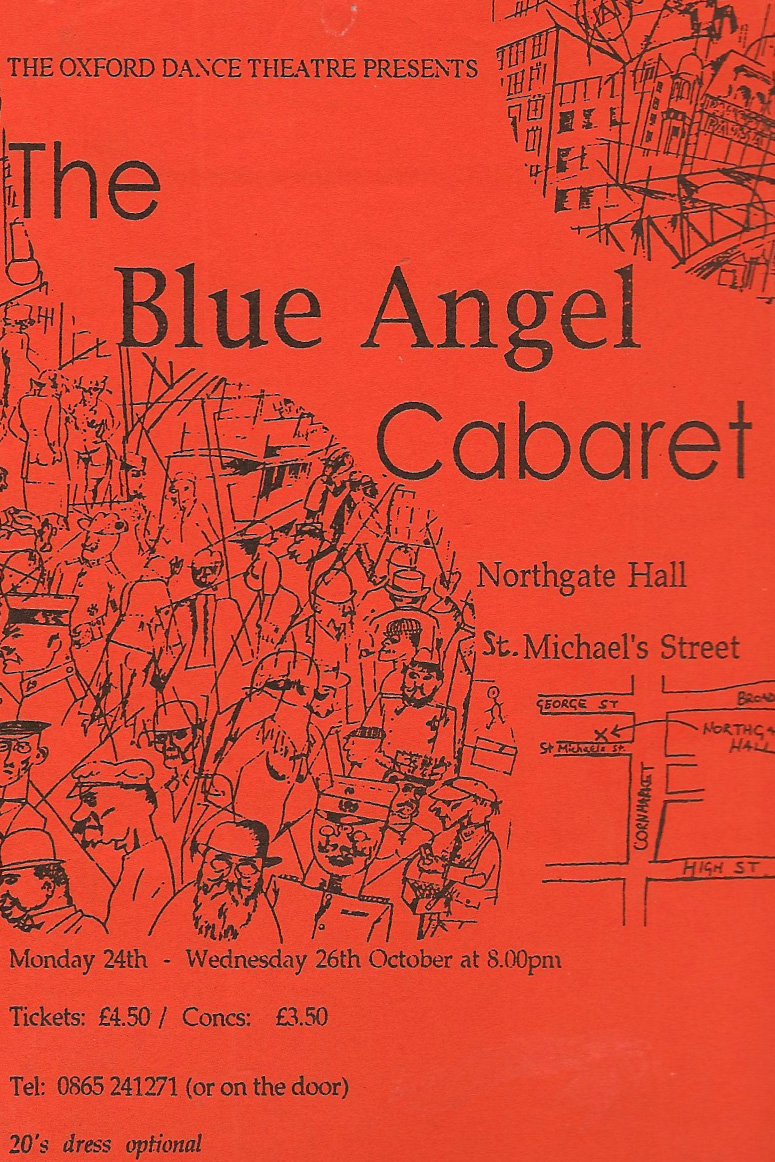
In the autumn of 1994 I staged what went under the name of The Blue Angel Cabaret. I had been moved by the celebrated 1929 film which I had seen as a student, and had created a dance drama version with pupils at Lord Bill’s. The Blue Angel film tells the story of Rath, the professor, who goes to the Cabaret to stop his schoolboys playing truant. He falls victim to the charms of nightclub singer/dancer, Lola (played in the film by Marlene Dietrich, whose song ‘Falling in Love again’ is the leitmotif of the piece) and, having married her, leaves his post as a teacher to tour with the actors. He takes on the grotesquely humorous role of the clown, and the end for him is, inevitably, tragedy. As Robert Bristow, who played Professor Rath, recalls, ‘I became totally absorbed in this role; the drama was played out without any words – silent movie style – meaning that I had to rely on mime, body language and facial expression; this was something unusual for me, having always relied on voice as a chief means of expression; but with excellent direction and support from a brilliant cast I felt that the results of the work were incredibly powerful.’
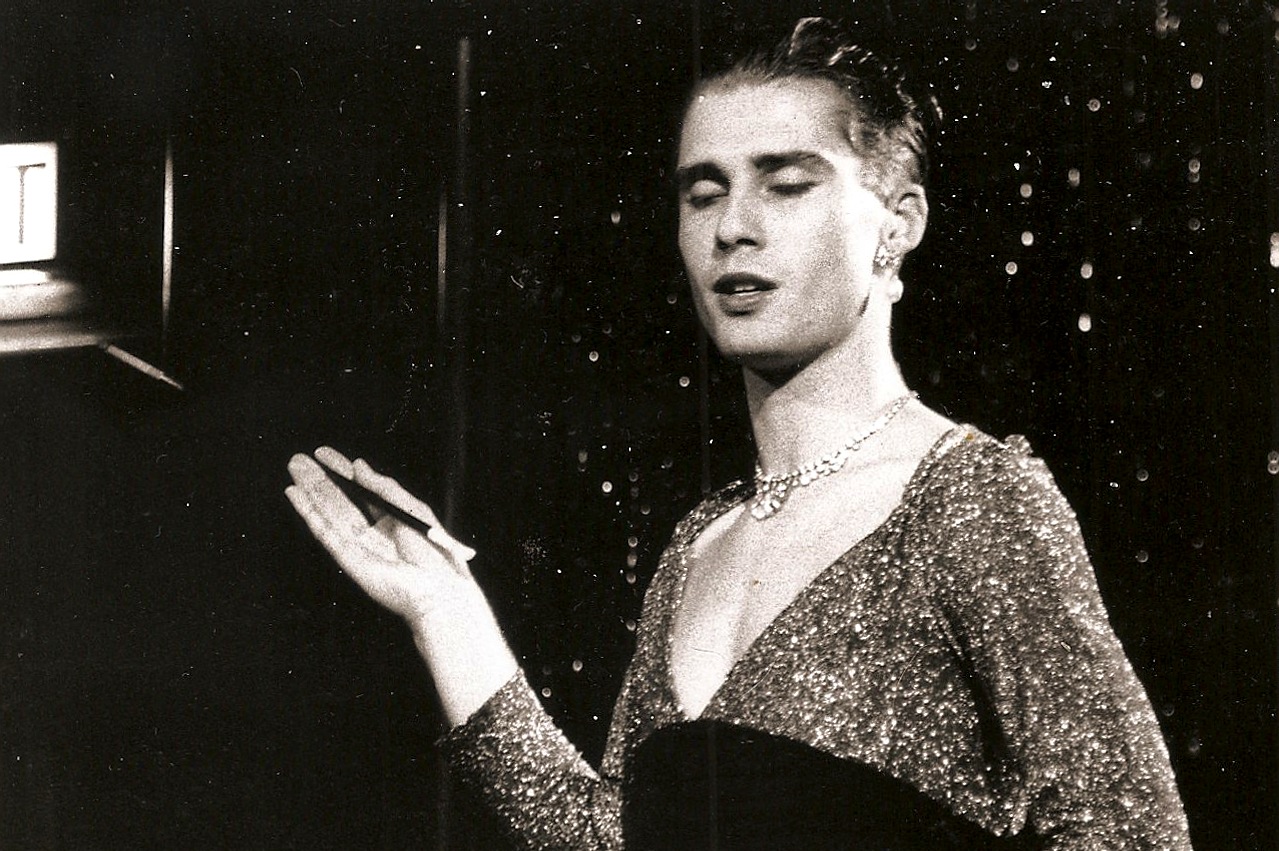
singing 'Falling in Love Again', made famous by Marlene Dietrich.
For me, it was more than usual a case of space and performance coming together. I had discovered Gayle’s bar, (which, I guess, would now be called an LGBT nightclub), in the basement of Northgate Hall, St. Michael’s street. Even more so than with Happy End, the venue was perfect: a dark, dingy hall, with a few unprepossessing tables and chairs, an old piano and a small stage with no wings. A few lights on stands. Nothing fancy. A setting Brecht would very much have favoured, I’m sure, if only because of the necessarily intimate actor/audience contact.
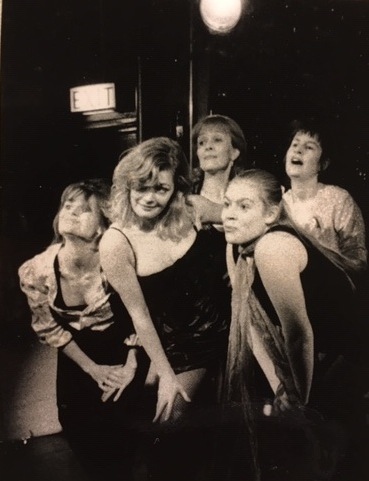
Members of the cast acted, sang and danced, using the small room to great effect, constantly bringing their acts out into the audience. Characterisation was sharply delineated, upfront and colourful, all actors performing with versatility and vitality. David, being a great fan of the music used by Brecht: Kurt Weill, Hans Eisler (foremost Communist composer of the period) and Paul Dessau, among others, was happy to play on the ropey old piano, which gave just the right atmosphere. To quote Brita Benson, who played Lola, but was, like the others, an equal member of the group, singing, reading poetry as necessary. ‘I remember standing in the khaki light of the cabaret floor surrounded by strong voices belting out a Communist ballad, and, not having had any such experience in my very English life, found an impassioned voice emerging. We were standing up for the common man, fighting for freedom and rising up for people’s liberation. It was very moving, and at the end you could have heard a feather drop. I was struck by the passion and courage the song evoked.’
This show was an adventure for me as it involved items from many sources, including extracts from plays and poems of the period, which required much fascinating research on my part. There were songs from the First World War, Communist propaganda poetry and songs, a drag act performed by a rather beautiful young man, the Charleston danced by three sexy girls, and a short play by Brecht, A Respectable Wedding, satirising the bourgeoisie. The just married wife in the play, Marion Baker, was actually seven months pregnant, which was appropriate ... She sang a Brecht/Eisler song, ‘Abortion is Illegal’, and commented, ’It was certainly odd and uncomfortable singing a song about abortion, but highly suitable for the Brechtian nature of the show. I wore a negligee which covered my bump, but it was still obviously there!’
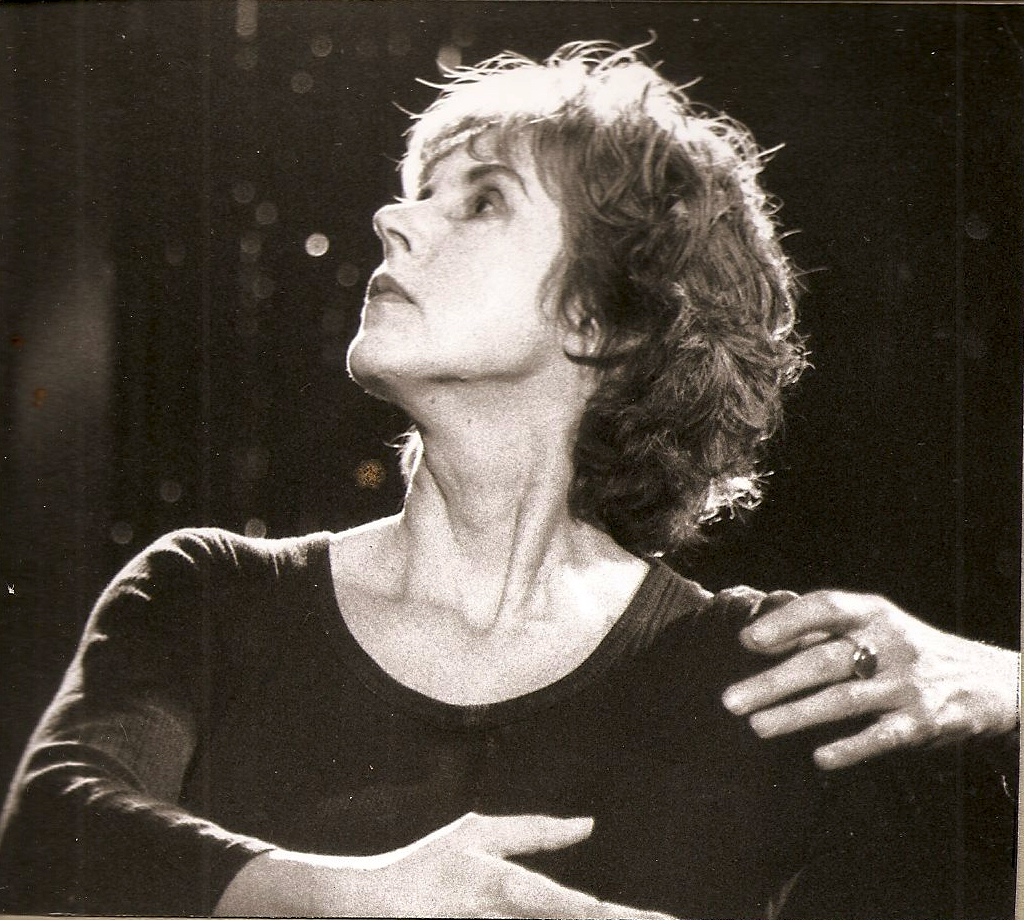
Jackie dancing as actress, artist's model and cabaret
artiste,Valeska Gert, who is supposed to be at the
beginning of the Punk movement. This was her so-called 'death agony' dance.
It was one of the rare theatrical events in which I appeared, dancing in the manner of an extraordinary cabaret artiste of the period, Valeska Gert. Part of the dance was a recreation of what was called her ‘death agony’ sequence, which involved me, gruesome in white makeup, rolling about the floor wearing black tights and leotard. The floor was not clean, but I was happily sacrificing cleanliness for art …
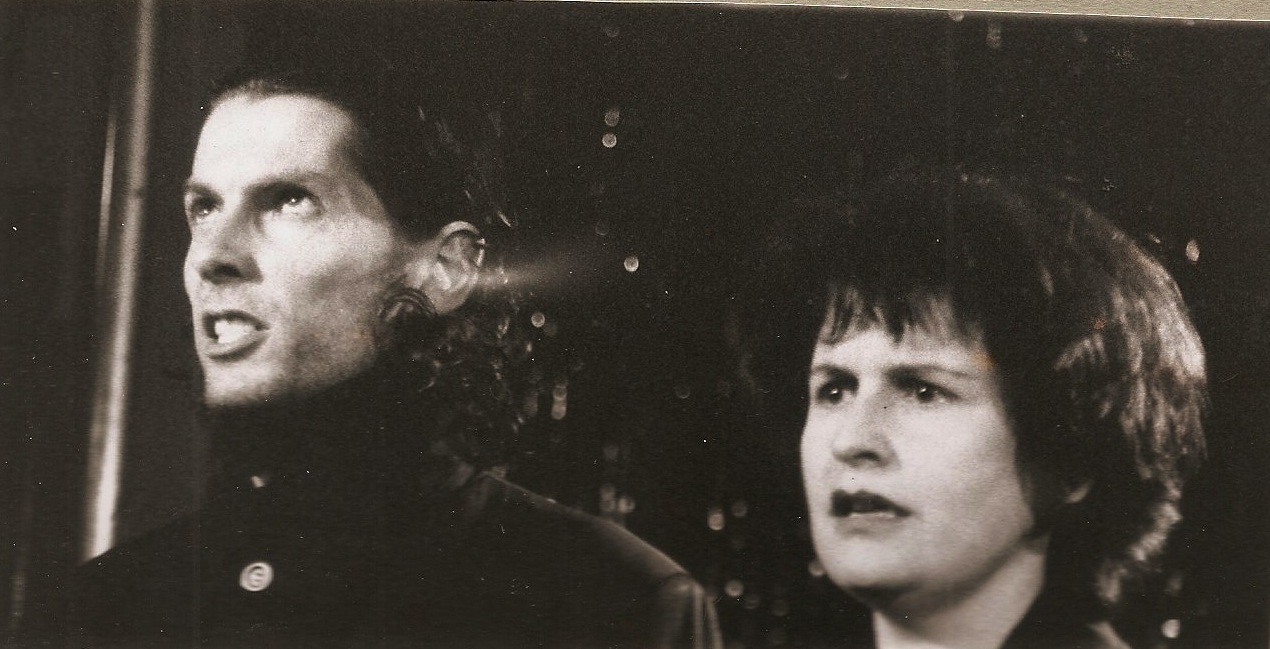
Val Shelley and Geoff Baker belting out
a propaganda song by Communist composer Hans Eisler,
good friend of Brecht.
Fundamentally, as with all the plays I have directed, the initial purpose was perhaps a selfish one: to explore and then to express something about the world, within a space that absolutely fitted the theme. And I learned a lot.